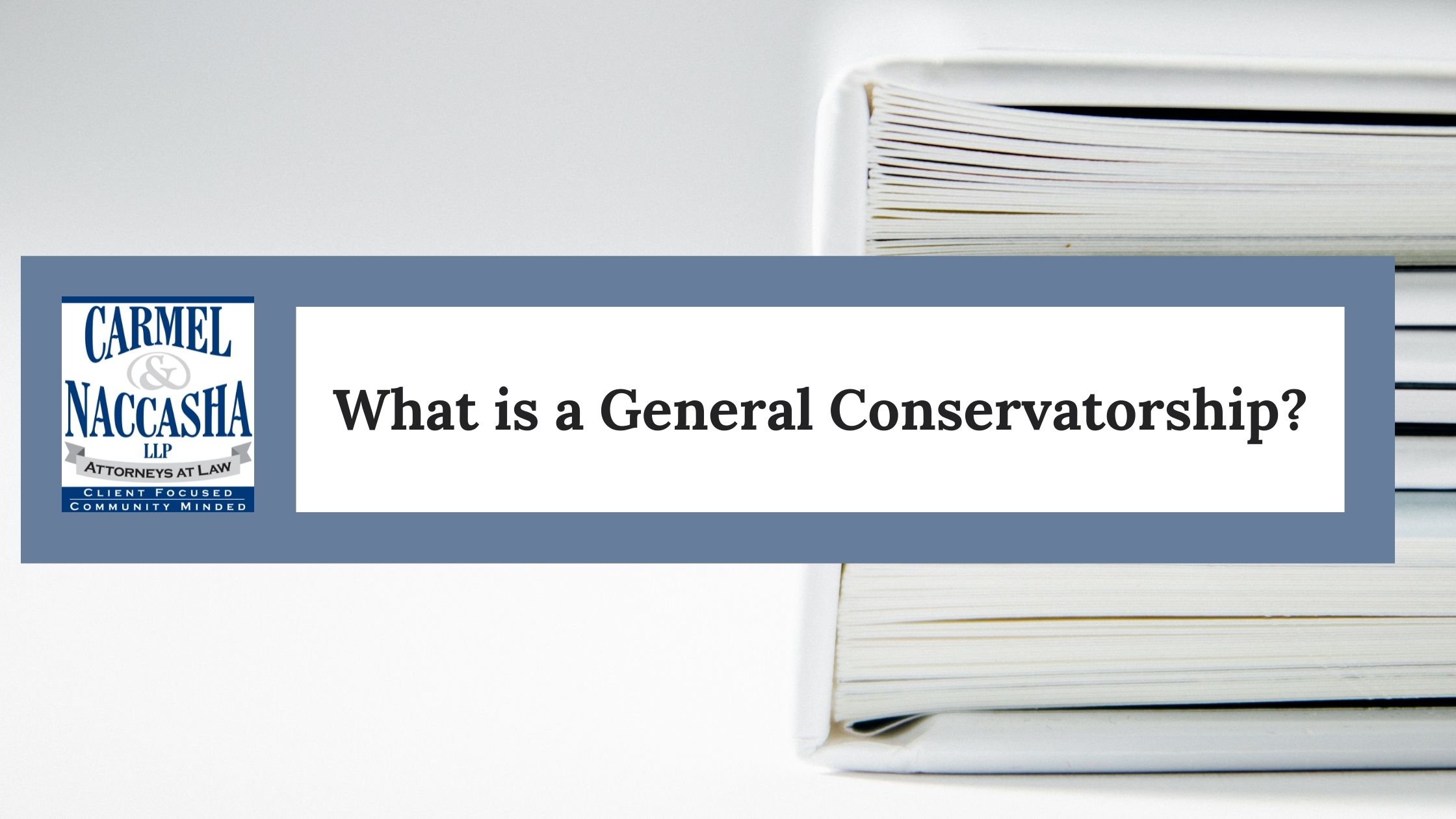When would a conservatorship be necessary?
Hopefully, none of us ever gets to the point where a loved one is no longer able to make day to day decisions or complete simple tasks, such as, take proper medication, schedule doctor’s appointments, prepare a meal, keep a roof over their head, handle their finances, or avoid being taken advantage of by unscrupulous individuals. When your family is faced with some or all of these conditions, the law allows an interested person to seek to protect the loved one, through a conservatorship.
What is a conservatorship?
A conservatorship is a legal process, supervised by a court, in which an individual (a conservator) is appointed as a decision maker on behalf of a protected individual (a conservatee). There are potentially two parts to every conservatorship. A conservatorship of the person, and a conservatorship of the estate.
What’s a conservatorship of the person?
A conservatorship of the person allows for the conservator to make decisions regarding physical health, food, clothing, or shelter for the conservatee. It is important to note that a conservator cannot make a decision regarding medical decisions, placement in a locked facility, or dementia related medication without a capacity declaration from a doctor or psychologist. See here for a discussion on obtaining a capacity declaration from a medical professional. A capacity declaration is often a key part of any conservatorship.
In addition, it is important to note that a conservator of the person cannot make decisions regarding psychotropic medication on behalf of a conservatee. In order to have that power, a Lanterman-Petris-Short Act conservatorship needs to be granted (commonly referred to as an LPS conservatorship) by the court.
What’s a conservatorship of the estate?
A conservator of the estate allows for the conservator to make decisions regarding the conservatee’s finances. For example, you can collect rental income, pay bills, invest money, provide the conservatee with pocket money, etc. However, a conservatorship of the estate does not allow the conservator to make decisions regarding assets held in a trust or assets held between a married couple (or domestic partnership). The trustee can handle the assets in the trust and the well spouse can handle marital assets. If the proposed conservatee is also the trustee of their trust, they are likely unable to manage the finances of the trust. In that situation, the trust should have language about how a successor trustee takes over and who is the successor trustee. In some circumstances a party may have to court to court to get an individual appointed to act as the successor trustee.
How is the conservatee protected from abuse?
If you are seeking a conservatorship of the estate, the court will require that you also post a bond. The amount of the bond will be determined by the court based on the total value of the assets of the conservatorship estate. Generally, the initial bond payment comes out of the pocket of the petitioner, but is often reimbursed from the conservatorship estate. Later, annual bond premiums are often paid from the conservatorship estate. The bond is designed to protect the conservatee if you, the conservator, misappropriate or steal funds.
Recordkeeping and Mismanagement
Once a conservatorship is granted, the court will keep periodical watch over the actions of the conservator and conservatee, so it is important to keep great contemporaneous records with all relevant back up. Mismanagement by the Conservator may result in the conservator’s removal, surcharge or loss of a bond. It is important for the Conservator to remember that he or she must always put the interest of the conservatee ahead of their own.
After being appointed, the court will require reviews of the conservatorship annually or biannually. At that hearing, the court will want to make sure that the conservatee is well taken care of, is not being abused, her finances are being properly managed, etc.
Wrapping up…
A conservatorship is designed to last until the conservatee regains capacity or passes away. To be a conservator is a long-term commitment that is mentally, physically, and potentially financially taxing. Before taking this step, it is recommended that you reach out to an experienced attorney who can help you and your loved ones with the conservatorship process.
Contact Legal Professional
The information provided herein does not, and is not intended to, constitute legal advice; instead all information, content, and materials are for general informational purposes only.
If you have any questions, please contact Carmel & Naccasha, and for more details, read our full disclaimer.
If you have any questions about this article, please contact attorney Victor Herrera for assistance with the conservatorship process.



